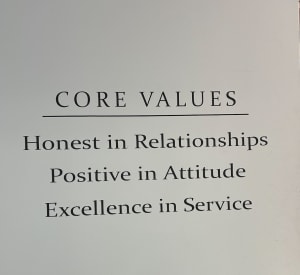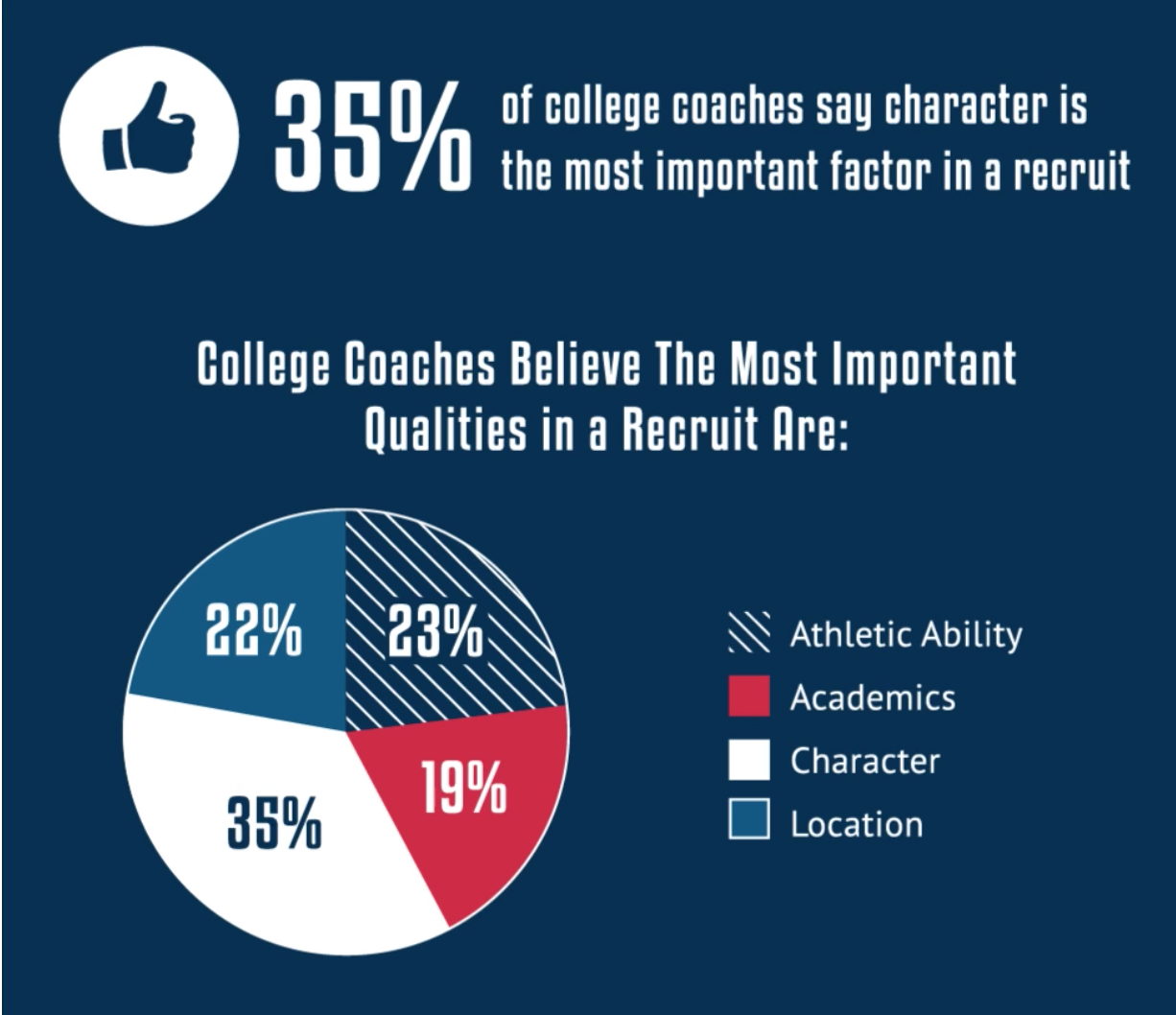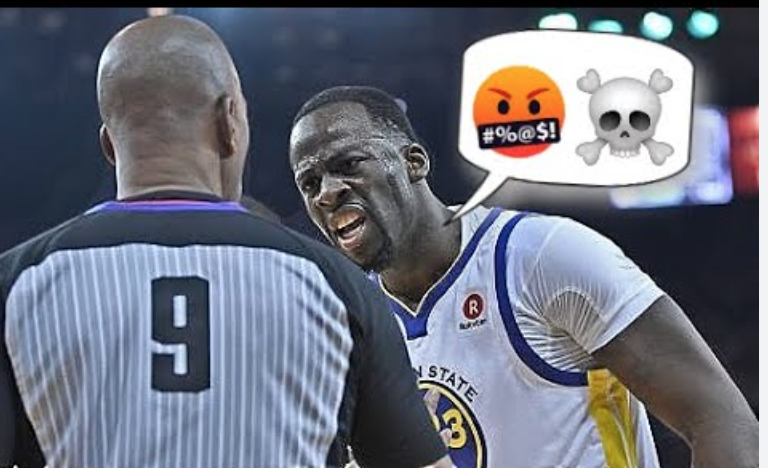
The 2019 NCSA State of Recruiting Report, reveals that college coaches want more than the best high school athletes. They surveyed college athletic coaches about recruiting and identified key trends in the recruitment process. These coaches were asked to rank the following qualities:
-character
-athletic ability
-academics
-location
Check out their results. Click here to read NSCA entire article.

Athletes should be paying attention to the fact that 35% percent of college coaches ranked character first. This means an athlete’s coachability is a key variable in recruitability.
The Parisi Speed School is different from other speed programs for many reasons. Besides having a result-driven program that builds curriculum and training strategies based on the latest research, it recognizes and prioritizes coachability and character. Therefore, our curriculum cleverly integrates these key attributes in our programming. This is obvious when you read our mission statement and core values.
Our mission as the industry leader in performance training is to deliver a positive training experience that improves speed of movement and strength in character regardless of ability or economic status.
HONESTY - POSITIVITY - EXCELLENCE
Coachability is an athlete’s attitude and character. For the staff at the Chicago Parisi Speed School -we are always providing feedback as a means to improve an athlete’s skills, but also as a tool to help them learn how to receive positive and critical feedback. Athletes must realize that their skills have exponential growth if they digest the constructive and appropriate feedback. Skills do not stand still. High school athletes have only reached a few developmental milestones in their life. College level athletics presents larger milestones which are simply harder to climb.
A coachable athlete is open and humble, listens to honest feedback. But it is not enough to just listen, you need to know how to apply it. The application of feedback requires athletic intellect.
"One of the most important impacts I hope to have as the Owner of the Chicago Parisi Speed School is the growth of the Athletic IQ," says Owner of POW! GYM, Home of the Chicago Parisi Speed School. The Parisi Speed School program provides the performance based framework to immediately improve a student-athlete’s Athletic IQ. Without the intelligence to understand feedback, an athlete is more likely to become defensive. Parisi Speed School coaches are constantly circling back to critical speed training concepts, sticking to the most foundational elements of speed and performance development. These are some of the most important lessons these athletes will learn since they will encounter times of injury and they will need to return to these mechanical basics to rebuild their speed, explosivity and overall performance abilities.

How to become more coachable.
You must demonstrate your coachability always, not just when interviewing with a college coach. College recruiters and their coaching staff are pros at sniffing out bullshit. Start now! Become a better listener and teammate. Do not think your high school coaches will lie about your character to a college recruiter. If you do not take criticism well, pout, screw around on the sidelines, your high school will pass that along if asked. They want to see great things happen for you, but they will not jeopardize their relationships with a college recruiting staff.
Assess how you behave during all the in-between moments of play. Coaches observe the sidelines. They are watching how an athlete interacts with their teammates, opponents and coaching staff. Your behavior when things go wrong, or when other players have errors, is more important than the hands you shake after winning a agame. The place to be on the sidelines is next to one of your coaches. Listening, asking questions and demonstrating that you have laser-focus on what is happening. Trying to understand the game from more than one point of view. Know when to ask a question to your coaches. This is a skill you will use all throughout your life.
Learn how to be a better support system on the field and during practices. You should never be too big for a drill, task or assignment. Remember that the minutes at practice and during off-season training will define more of your true athletic success than the time on the field.
How do you handle the ref’s calls - good and bad? Be respectful of how the game is run. Refs will always make good and bad calls regardless of what level you play. They are a fact of the game. Make sure you have a deposition that can handle all the calls.
Show your love of the game at all times. Recruiters know everyone has favorite players they admire, but they want athletes that love the actual game. Coaches coach for the love of their game. Passion for your sport must be honest.


